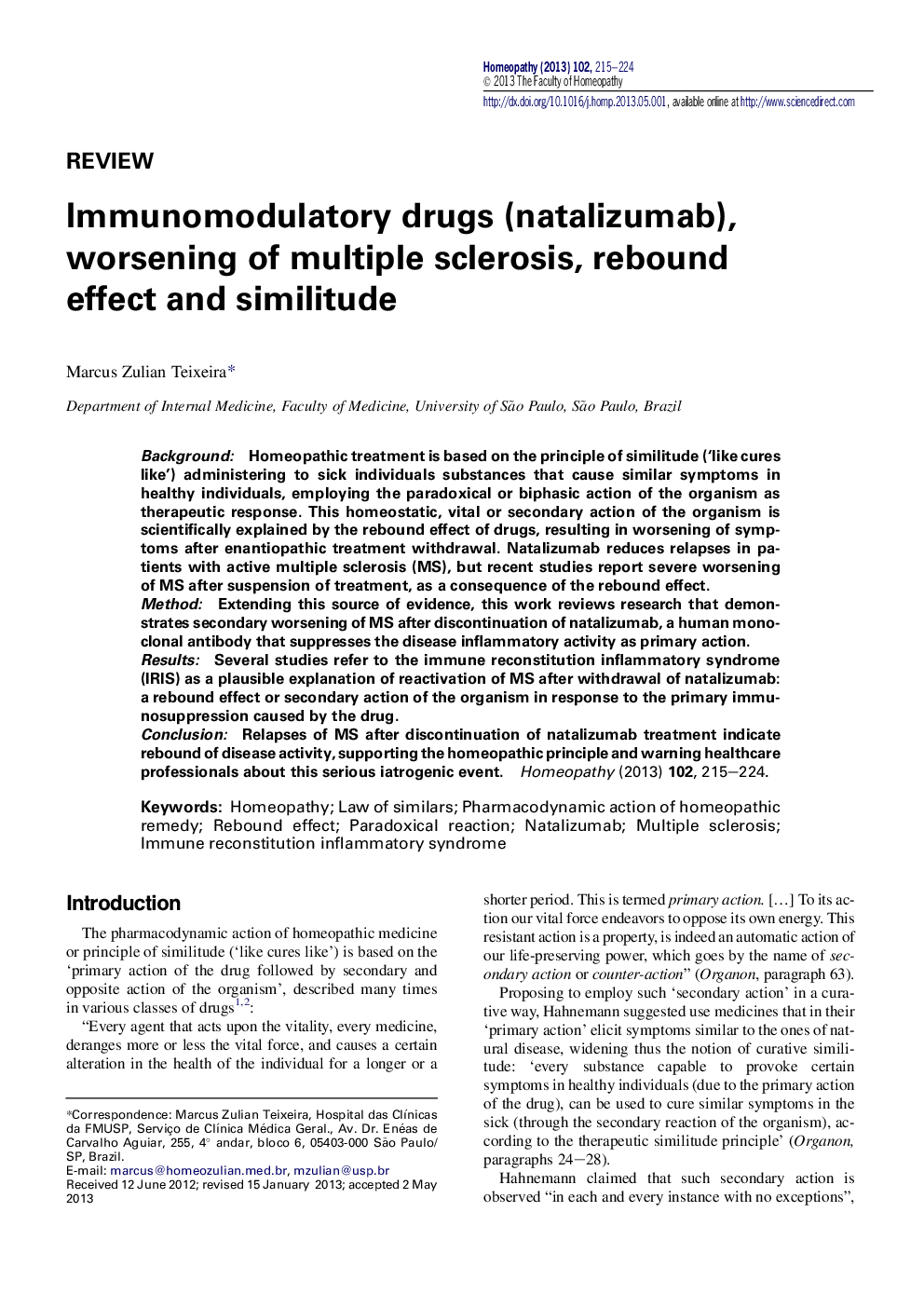| Article ID | Journal | Published Year | Pages | File Type |
|---|---|---|---|---|
| 2629945 | Homeopathy | 2013 | 10 Pages |
BackgroundHomeopathic treatment is based on the principle of similitude (‘like cures like’) administering to sick individuals substances that cause similar symptoms in healthy individuals, employing the paradoxical or biphasic action of the organism as therapeutic response. This homeostatic, vital or secondary action of the organism is scientifically explained by the rebound effect of drugs, resulting in worsening of symptoms after enantiopathic treatment withdrawal. Natalizumab reduces relapses in patients with active multiple sclerosis (MS), but recent studies report severe worsening of MS after suspension of treatment, as a consequence of the rebound effect.MethodExtending this source of evidence, this work reviews research that demonstrates secondary worsening of MS after discontinuation of natalizumab, a human monoclonal antibody that suppresses the disease inflammatory activity as primary action.ResultsSeveral studies refer to the immune reconstitution inflammatory syndrome (IRIS) as a plausible explanation of reactivation of MS after withdrawal of natalizumab: a rebound effect or secondary action of the organism in response to the primary immunosuppression caused by the drug.ConclusionRelapses of MS after discontinuation of natalizumab treatment indicate rebound of disease activity, supporting the homeopathic principle and warning healthcare professionals about this serious iatrogenic event.
